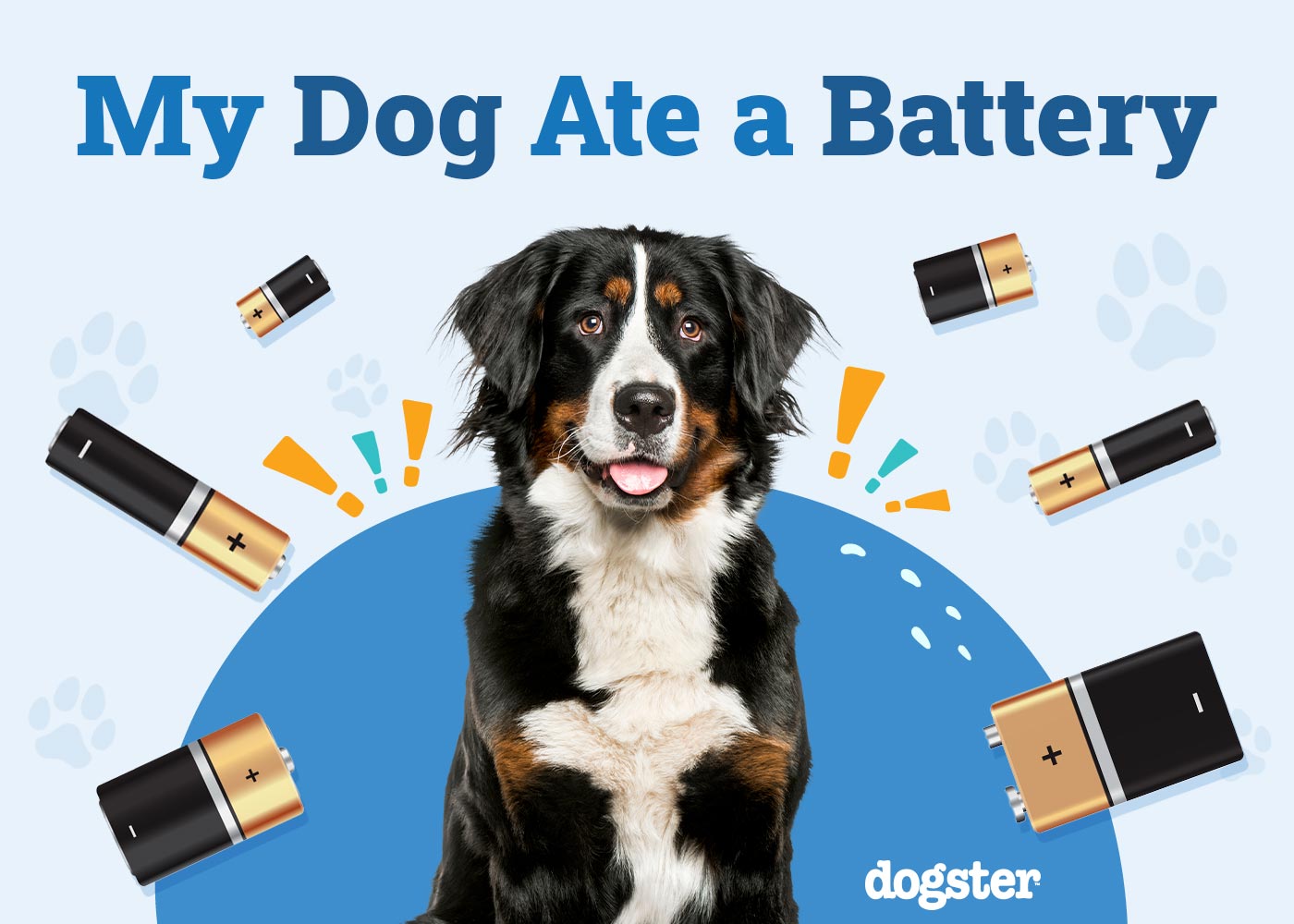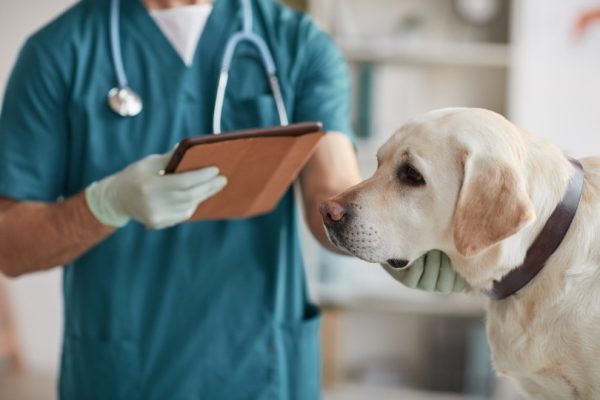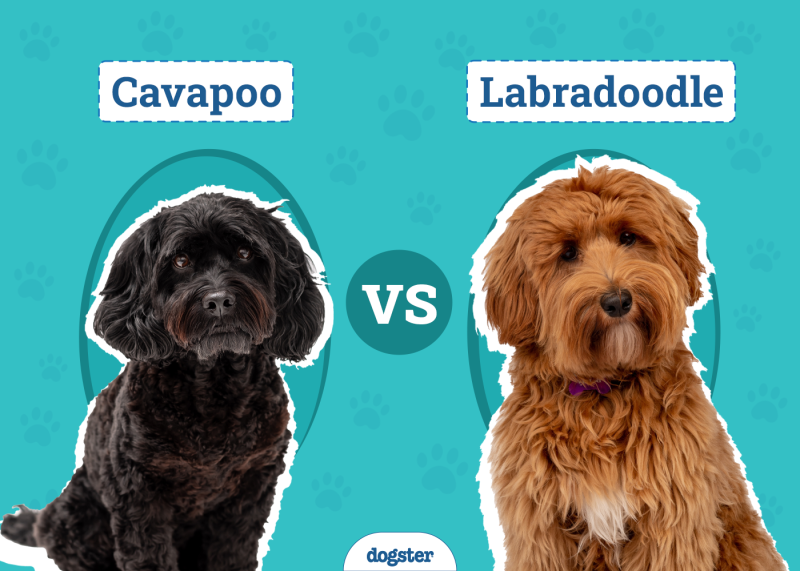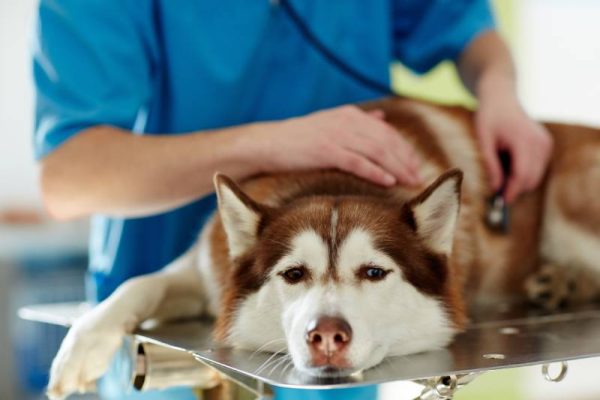In this article
View 4 More +Batteries can be extremely damaging to dogs, causing irritation and ulceration to the digestive system if they are swallowed. They may also present as a choking or intestinal blockage hazard. If your dog has eaten or chewed a battery, seek immediate veterinary attention.
If you need veterinary advice for your pet, we recommend PangoVet’s TeleVet service. You can have a video consultation with a real veterinarian from the comfort of wherever you are, no travel needed. PangoVet’s vets can provide you with personalized care and advice, and hopefully help ease your mind.

If you want to speak with a vet online, head to PangoVet and get the personalized advice you need for your pet — all at an affordable price!
Please note that PangoVet does not offer prescriptions and is not for medical emergencies.

What Are the Battery Types?
Lithium disk or button batteries have no corrosive material but can cause tissue damage when an electrical current passes through the battery. This type of battery can cause the greatest damage.
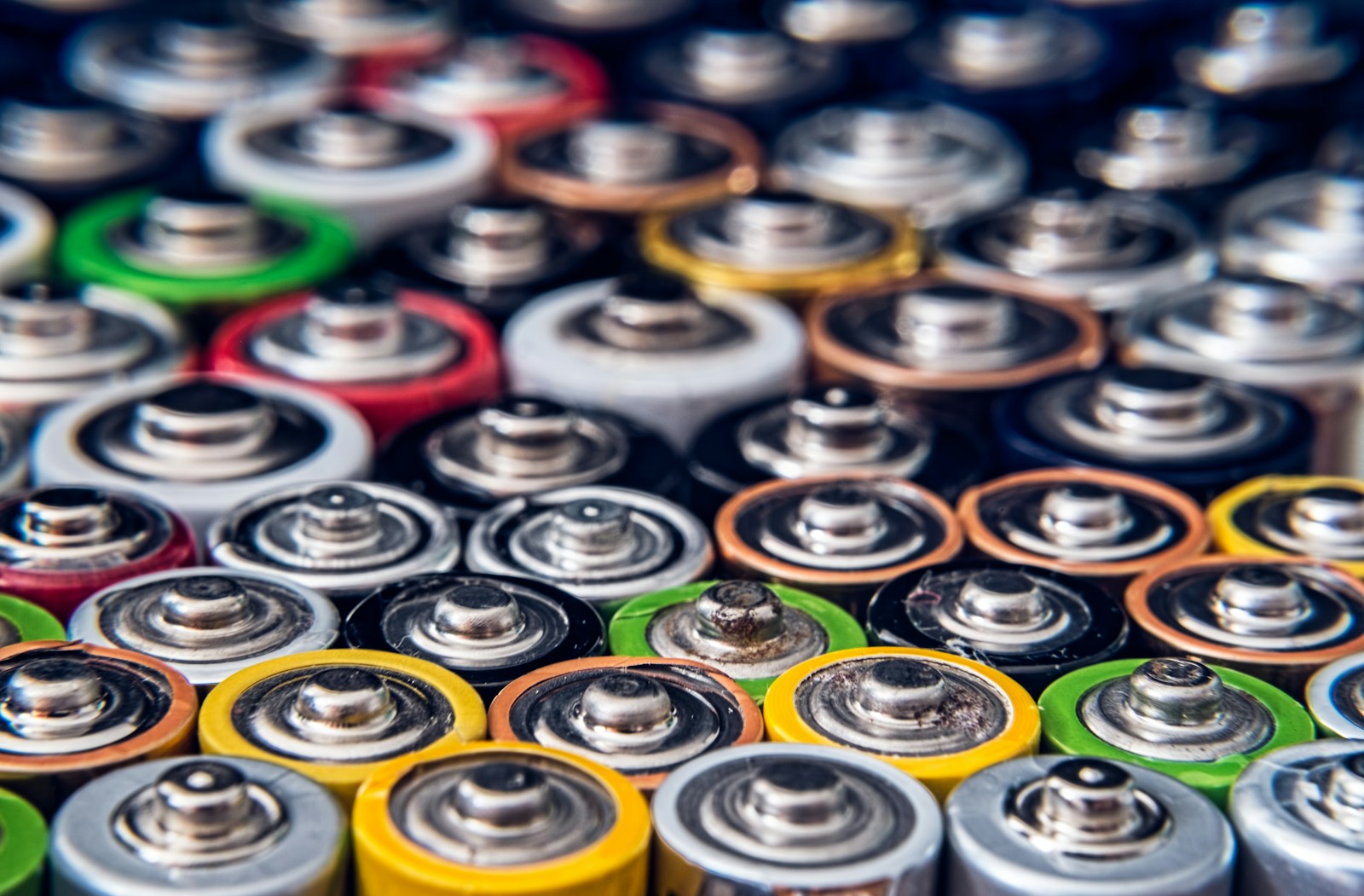
- Alkaline dry cell batteries are the most common type found in the majority of households and contain either potassium hydroxide or sodium hydroxide.
- Acid dry cells contain ammonium chloride or manganese dioxide.
Common household items that dogs may chew on containing batteries include remote controls, hearing aids, toys, holiday gifts, and decor. It is imperative to keep all items containing batteries, including toys and bedding, away from dogs.
Why Are Batteries Hazardous If They Are Swallowed by a Dog?
If the outer coating or casing of a battery is ruptured, the battery may leak alkaline or acidic substances that can eat through surrounding tissues. Certain batteries, such as round or disk-shaped designs, can cause an electric current to pass through tissues of the gastrointestinal tract, which may lead to tissue death and perforation.
Heavy metal poisoning can also occur if the battery contains lead, mercury, zinc, cobalt, nickel, or cadmium, particularly if the battery remains within the digestive system for more than 2 or 3 days.
- Skin burns or irritation if the dog is exposed to the contents
- Burns, ulceration, or irritation to the intestinal tract, including the mouth, esophagus, stomach, and small intestine
- Blockage of the intestinal tract
- Blockage of the respiratory tract
- Perforated membranes or systemic toxicity due to corrosive compounds, such as metal and battery acid
- Secondary peritonitis due to perforation of the GI tract
- Hemorrhage if ulceration of the GI tract tissues extends into major blood vessels
- Heavy metal toxicity, affecting the liver and central nervous system
What Are the Signs of Battery Poisoning in Dogs?
Signs may occur immediately or several hours after being swallowed by a dog. In general, this may be anywhere from 2 to 12 hours after ingestion. The presence of a grayish-black material adhering to the oral cavity, teeth, and gums may indicate the leakage of corrosive material. The signs may include:
- Inappetence
- Oral irritation
- Mouth, abdominal, or stomach discomfort
- Dark, tarry stools
- Trouble swallowing
- Pawing at the mouth
- Salivation
- Nausea
- Vomiting
- Anxiety
- Coughing
What to Do If Your Dog Ate a Battery

If you see or suspect that your dog has eaten a battery, call your veterinarian or poison control immediately. Helpful poison control resources for pets are:
Confirm that all battery fragments or pieces are present. Remove them from your dog’s vicinity to prevent further chewing or ingestion. If you can see battery fragments or remnants, including battery acid in your dog’s mouth, flush their mouth and any exposed areas of skin with warm tap water for 15–20 minutes to dilute any remaining material.
Continue closely monitoring your dog for battery poisoning, including signs of oral irritation, which may present as redness and ulceration of the gums, tongue, and the back of the throat. Do not induce vomiting at home, as the battery can become lodged in the esophagus and cause further injury to the tissues.
How Is Battery Poisoning in Dogs Treated by a Vet?
Your veterinarian will perform a thorough physical examination, paying particular attention to your dog’s mouth and digestive system. Your veterinarian may recommend radiographs to locate the battery and assess any other (potential) damage to the digestive system. Blood work may assess any blood loss, inflammation, or infection. In some cases, batteries can be removed endoscopically. In other cases, surgical removal of the battery may be required. Other supportive care may include oral irrigation, clear liquids and a soft diet, antibiotics, pain medication, stomach protectants, and antacids.
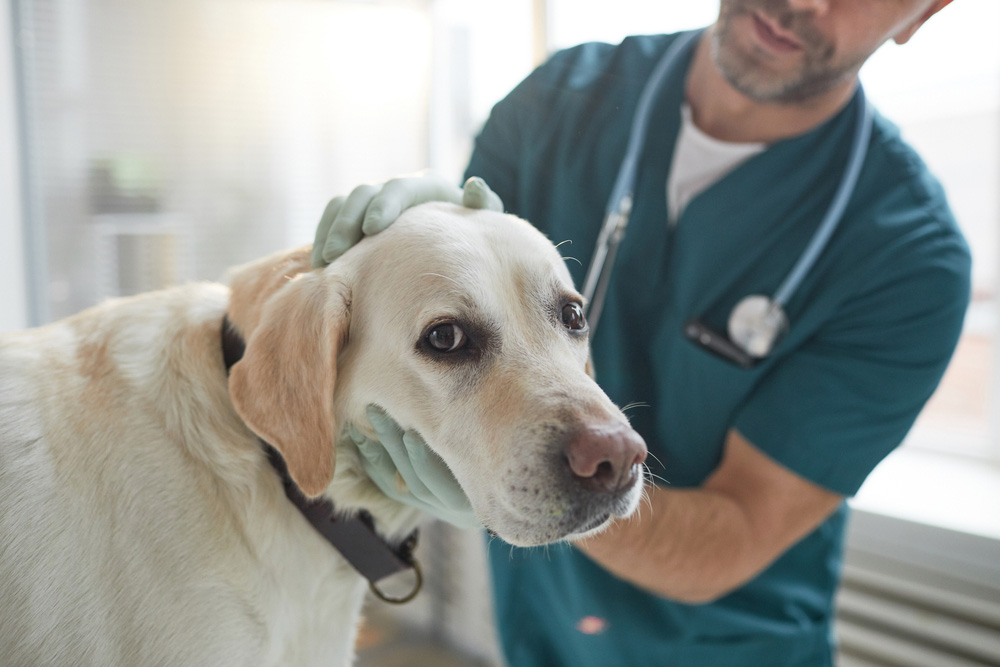
Some dogs may need a feeding tube if the injury is extensive and produces discomfort when eating and drinking. If a dry cell battery has not been punctured and is not leaking corrosive material, it may pass through the GI system without causing further damage. It may be necessary to monitor your dog with repeat radiographs and the examination of their stool to ensure that the battery passes without harm.
- Inflammation of the esophagus, esophageal stricture, or diverticulum, which may present as anorexia, excessive salivation, and regurgitation
- Gastritis
- Ulceration
- Tissue perforation
- Septic peritonitis
- GI obstruction
- Heavy metal toxicity

Conclusion
Batteries can be extremely dangerous when swallowed by dogs. They can cause tissue burns, perforations, blockages, and toxicity from heavy metals. Untreated, this may lead to death. Therefore, immediate action is required if your dog swallows a battery.
Featured Image Credit: Visor69, Unsplash
